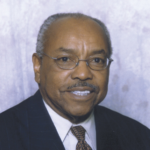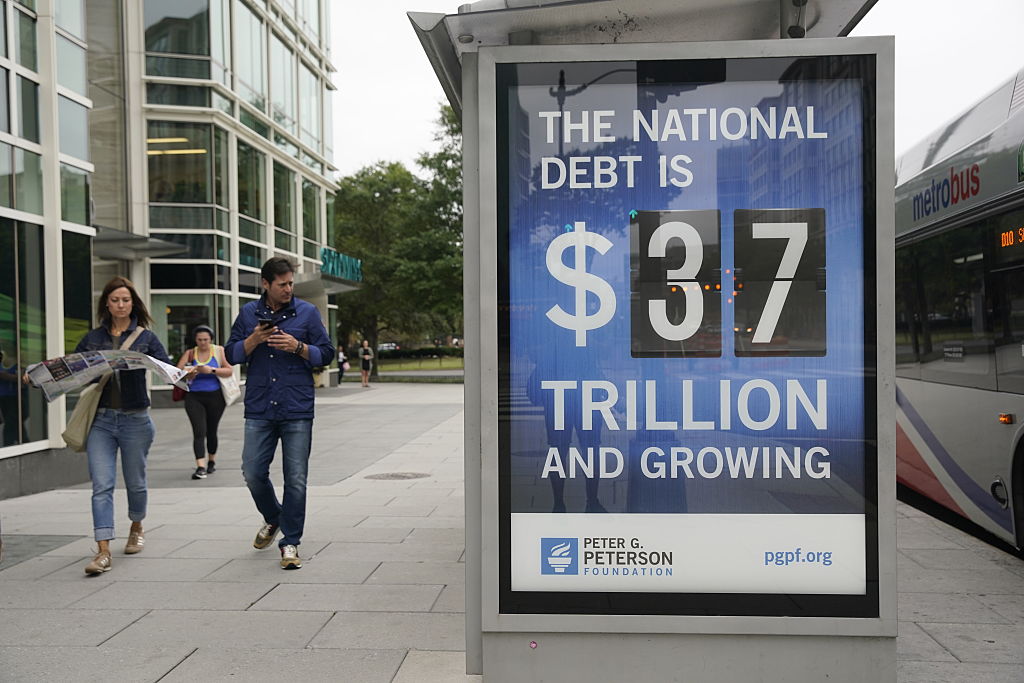The presentations by Bruce Montgomery, Dr. Hardy Murphy, Rev. Ceasar LeFlore, and Dr. Elroy Leach demonstrate a new level of awareness among black Americans of conservative and libertarian ideas and sophistication about how to address them. Blacks are becoming philosophically more compatible with conservative social and economic policies.
All the speakers agreed on the need for a national discussion in the black community about conservative values. Such values and personal accountability are the keys to resurrecting a real determination for educational, economic, and social progress.
Rev. LeFlore summed it up by quoting Winston Churchill, who said if you were not a liberal when you were young, you had no heart, and if you were not a conservative by the time you were older, you had no brains.
Rev. LeFlore also said, “I believe that when we think about these things and then consider what our positions should be on them, it makes a change in us.” All the speakers agreed on the need for a national discussion in the black community about conservative values. Such values and personal accountability are the keys to resurrecting a real determination for educational, economic, and social progress. These views do not belong to a particular political affiliation, class, or economic level. They simply describe good citizenship.
Bruce Montgomery pointed out that having good ideas or winning debates isn’t enough: We need to communicate these ideas to as many people as possible. This can be done by using talk radio, as the talk show hosts in Tennessee did, or by using the new technologies of email and the Internet. Celebrities also play a key role in this: Bill Cosby recently set off a firestorm of controversy by commenting on this very subject. His speaking out could not have happened at a more opportune time.
What Do Blacks Have to Conserve?
As Walter Williams has written, black people in the United States as a group have made the greatest progress, over some of the highest hurdles, in a shorter span of time than any other racial group in history. Black Americans are among the world’s most famous personalities–Oprah Winfrey, Michael Jordan, Bill Cosby, Tiger Woods, the Williams sisters, to name a few. The former chief officer of the world’s mightiest military force, Colin Powell, now Secretary of State, is black.
As Dr. Leach reported, more than three-quarters of black families now earn in the middle- or upper-income ranges. And consider this: 49 percent of black families owned their own homes in 2000 (up from 43 percent in 1990), and the average black household income (in constant dollars) rose 27 percent–from $23,979 to $30,439–during that same period. If blacks in the U.S. were a separate nation, it would be the 13th or 14th richest nation in the world.
Dr. Murphy told us blacks accomplished this by “buying in with vigilance.” That means participating in the democratic and capitalist institutions of society, rather than standing outside them and complaining about their workings. It means taking advantage of the opportunities they present, rather than focusing on the increasingly small number of doors that have stayed shut. But it also means, Dr. Murphy further reminds us, that we must remain vigilant about not losing sight of the values and choices that made us who we are today.
Few slaves or slave-owners would have believed such achievements were waiting in the future. Yet we are not reminded of this impressive rising up of a race in school textbooks, in histories either academic or popular, or by popular commentators on race relations today, whether they are conservative or liberal. It’s as if part of American history were omitted, the part about how black Americans embraced the ideas of freedom and self-responsibility, and how when they were finally released from the chains of slavery and Jim Crow laws, most blacks eagerly and successfully took part in the American Dream.
This is the history and legacy that conservative blacks seek to conserve. Not memories of victimhood, losses, and injustice, but of rising above obstacles and accomplishing more than anyone thought possible. As Booker T. Washington wrote, “I have learned that success is to be measured, not so much by the position one has reached in life, as by the obstacles which he has overcome while trying to succeed.”
Black Conservative History
The idea for this panel resulted from my efforts to expand my knowledge of the history of black conservatism, because if you don’t know your history, charting your future can be difficult. It was a little surprising, then, that the speakers focused on today and tomorrow, and spent very little time on the past. Perhaps an epilogue is a good place to mention what the speakers did not say.
My colleague Jay Parker in Washington, DC says, “the very idea of black conservatism seems unreal to some observers, both black and white. This reveals an almost total lack of awareness and understanding of black history and the black intellectual tradition in the United States.”
According to Peter Eisenstadt, editor of the 1999 book, Black Conservatism: Essays in Intellectual and Political History, “The recent emergence of conservative blacks provides an opportunity to take a long overdue look at the history of conservative thought among black Americans. Its history is long and its impact has been persuasive. Any comprehensive history of black American thought that ignores the conservative impulse will be one-sided.”
Conservatism was, in fact, the dominant political philosophy in black America at the turn of the twentieth century. One of its leading lights was Alexander Crummell, born in New York City in 1819, a Harvard graduate, ordained an Episcopal priest and founder of a church in Washington, DC. He founded the American Negro Academy in 1897, a forum for black intellectuals.
Crummell was the first black American to construct an openly conservative political program. In describing the essence of black conservatism, he asserted that some black Americans “should be ranked among conservative men in this country, and stand among the firmest upholders of law and authority. One should be counted as the constant foe of revolution, communism, and revolt.” Crummell’s hero was Alexander Hamilton, and he criticized Thomas Jefferson and the Declaration of Independence for asserting that government derives its consent from the governed rather than from God.
Though Crummell was deeply conservative, he disagreed with conservative Booker T. Washington (1856-1915) for not making political and legal equality a priority equal to education and economic progress. It was a major disagreement between Northern and Southern conservative blacks, but for many years Washington was on the most popular side. As Kelly Miller wrote in 1908, “Washington had, by far, the largest group of followers, which included the business class, educators and the masses.”
Washington sought to instill conservative values in the black community because he knew they would be the building blocks of later success. In one of his speeches he said, “The Negro should acquire property, own his own wagon, milk his own cow, raise his own crop, and keep out of debt, and when he acquired a home he became fit for a conservative citizen.” Washington was describing a middle-class family lifestyle of self-reliance … the American dream.
“Uncle Tom” or the “Wizard of Tuskegee”?
Washington had to live with criticism during his life–criticism that has echoed through time and is still heard today–that he was too modest in his demands on white society. It is the same criticism leveled against conservative blacks today. But after Washington’s death in 1915 and when his personal papers were given to the Library of Congress, it was discovered that Washington was achieving tasks practically impossible for blacks to do at that time, such as hiring whites to spy on whites and hiring lawyers to fight the Jim Crow laws through the courts.
Washington could have proved to his critics at any time that he was not an “Uncle Tom,” but he understood the strength of opposition to his cause and the value of doing things quietly and without provoking opponents. He had a practical plan for his people and built institutions– including a school, Tuskegee, that still stands today. His opponents were popular speakers and quick to mouth the popular leftist ideologies of the day, but they had no practical plan.
How much further along would the race be today had the “Wizard of Tuskegee” lived another twenty years?
Conclusion
I am acutely aware that the meaning of the terms “conservative black” and “black conservatism” have been seriously damaged since the days of Crummell and Washington. Today in the black community these terms almost uniformly bring to mind negative images. One of the most troubling and divisive perceptions held by too many blacks is that “conservative” means right-wing, anti-black, racist, and Republican. History, and the thoughtful speakers on the Heritage panel, demonstrate how false this perception is.
Conservatism doesn’t belong to a political party. It is a state of mind and a type of character, a way of looking at the social order. The conservative tradition has deep roots in the black community because blacks as a people have much to conserve, beginning with traditional family values and culture. Conservative ideas have been a part of black religious, business, and social thought since the eighteenth century. George S. Schuyler, a journalist, in his 1966 autobiography titled Black and Conservative, described the American black as the “outstanding example of American conservatism: adjustable, resourceful, adaptable, patient, and restrained.”
Whether or not you agree with these essays regarding obstacles faced by black Americans, we all can agree that something must be done. We know that if the “dream” is to be realized, new voices must be raised, alternative solutions sought, and fresh ideas tried. Blacks cannot afford to be silent in the national debate about how the country will be governed.
Assembling this panel was a small step in that direction. I thank the supporters of The New Coalition along with our friends at The Heritage Foundation and The Heartland Institute for their assistance in making the panel, and this book, possible.
I would be remiss if I didn’t mention that after we organized The New Coalition in 1980, Willa Johnson, then with The Heritage Foundation, worked closely with us. When we had our first conference, we used envelopes from The Heritage Foundation to send invitations and news releases, so they would open the envelope! Thank you Willa, for helping us then, and for attending the panel discussion where these essays were presented.
Lee H. Walker ([email protected]) is president of The New Coalition for Economic and Social Change.




